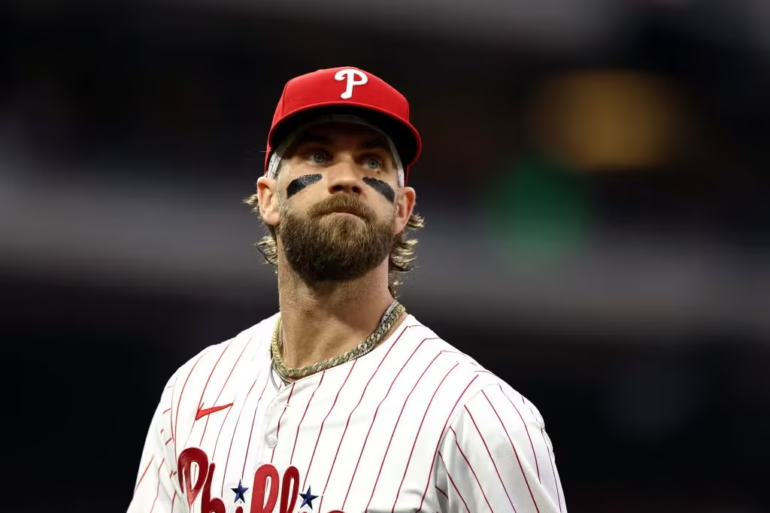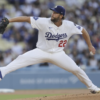A recent meeting between MLB Commissioner Rob Manfred and the Philadelphia Phillies turned confrontational when Bryce Harper, one of baseball’s most prominent voices, told the commissioner to “get the f— out of our clubhouse” after Manfred began discussing the league’s economic system. Though Manfred never used the phrase “salary cap,” his remarks about player spending and league profitability sparked outrage from Harper, who took a strong stance against any movement toward capping salaries.
The meeting was part of Manfred’s annual visits to all 30 teams to improve relationships with players ahead of the expiration of the current collective bargaining agreement in 2026. This time, however, players felt the tone shifted toward promoting ownership’s interest in a cap. Harper, initially quiet, stood up with bat in hand and challenged Manfred directly, saying players weren’t afraid of a full-season strike if the league pushed for such a system. Manfred refused to back down, emphasizing the need to discuss threats to the business and explore ways to grow the game. Phillies outfielder Nick Castellanos described the moment as “pretty intense, definitely passionate.”
Manfred has recently pushed the narrative that MLB’s current economic model needs adjusting. He pointed to declining percentages of revenue going to player salaries—down from 63% in 2002 to 47% today—and noted that 72% of payroll is concentrated among the top 10% of players. Critics, including the MLBPA, challenge both the math and the intent behind such talking points.
Tensions are further inflamed by the Commissioner’s Ambassador Program, which sends retired players—now on MLB payroll—into clubhouses with Manfred. The union sees this as an effort to sway current players toward accepting a cap, even though these former players never played under one themselves.
Harper, long considered the face of the modern player era, echoed the union’s firm opposition. MLBPA Executive Director Tony Clark recently called salary caps “institutionalized collusion,” arguing they serve ownership far more than players.
Though Harper and Manfred ended their exchange with a handshake, the aftermath reflects deeper issues. Harper ignored Manfred’s call the next day, and players around the league remain skeptical. With MLB being the only major North American sports league without a cap, and with ownership pushing for one, many believe another work stoppage is looming.
Castellanos summed up the players’ concern: “Nobody wants a lockout—not the players, not the league. But if that’s where it’s headed, we won’t back down.”

